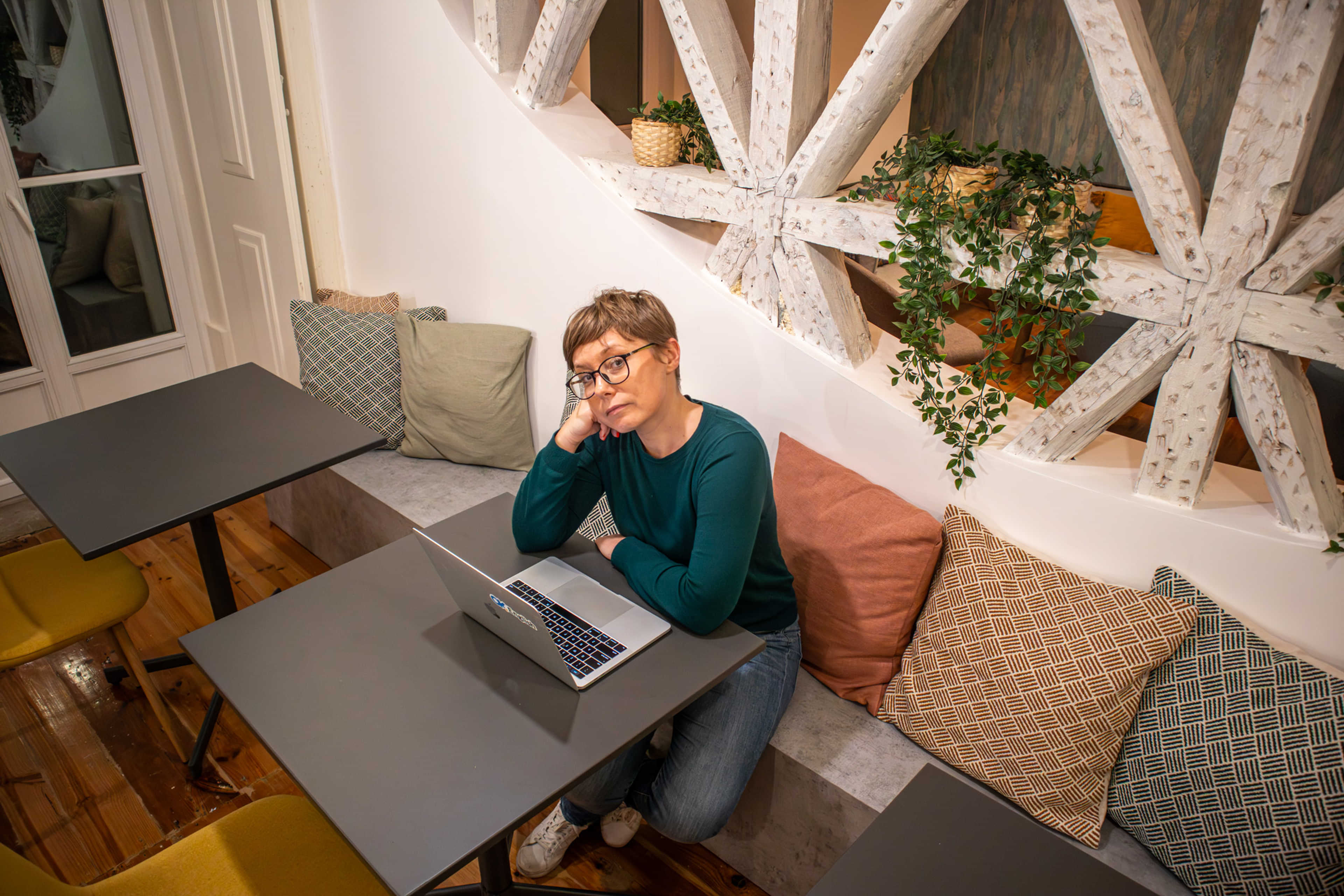
Work remotely
Complete Guide to Living in Lisbon as a Digital Nomad
Destinations
Joanna Horanin
Hi, I'm Joanna, the author of The Blond Travels. In the worlds of Thailand and Portugal, I feel like a fish in water - and it's no coincidence! I've been exploring Thailand for over a decade, and I've settled in Portugal for 6 years now. My mission is to support Dreamers - just like you - in discovering these fascinating countries and helping those in love with them find their own place on Earth, preferably for good! Let's uncover these unique corners of the world together.
- Why is Lisbon so great for digital nomads?
- Visa options for digital nomads
- Cost of living
- Best areas to live for digital nomads in Lisbon
- Finding accommodation in Lisbon
- Internet and staying connected
- Should you be worried about taxes?
- Essential services and logistics
- Coworking spaces and work set up
- Meeting people and community
- Cultural Etiquette
- Day – to – day life in Lisbon
- Things to know before you go
- Pros and cons of living in Lisbon as a digital nomad
- Final tips and recommendations
- FAQs about being a digital nomad in Lisbon
Lisbon wasn’t on my bingo card for that year. I really didn’t expect to come here, but it happened. My husband got a job in Portugal and we moved. I’d been working online for a few years and I was looking forward to getting to know another destination, which was so popular among digital nomads. My experiences with living and working abroad included Thailand and Vietnam, where I started my online business and really enjoyed myself. I had never worked online in Europe before, so that was something else. With time, I found out that being a digital nomad in Lisbon is different than in Asia and it required me to get used to certain things and a certain quality of life. I have been here for over 7 years now and while I’m not a digital nomad anymore, but I can safely say that I do know the reality here and I can advise anyone who wants to come here and work online about all the things one needs to know.
This blog post is a guide to living as a digital nomad in Lisbon. You will learn about accommodation, visas, costs of living and things you can do outside of your work. I hope that it will help you and inspire you to work and travel in Portugal and to get to know the capital city, which is truly an amazing place to be.
Why is Lisbon so great for digital nomads?

Lisbon is amazing for those working online and travelling as it still offers good quality of life for affordable price. It’s not as cheap as Thailand, but it can be for you if you don’t want to spend a fortune, but still want to stay in Europe.
Portugal has great internet connection. It’s really amazing. At home you’ll get speed that uploads and downloads big files in seconds. If you rely on a mobile connection, it’s the same. SIM cards are cheap and the internet is super fast.
You don’t have to be worried about the language either. The Portuguese speak English fluently. There’s no problem with communication in the big cities such as Lisbon. You might encounter some problems in the suburbs, but use Google Translate and it will be enough for simple conversations.
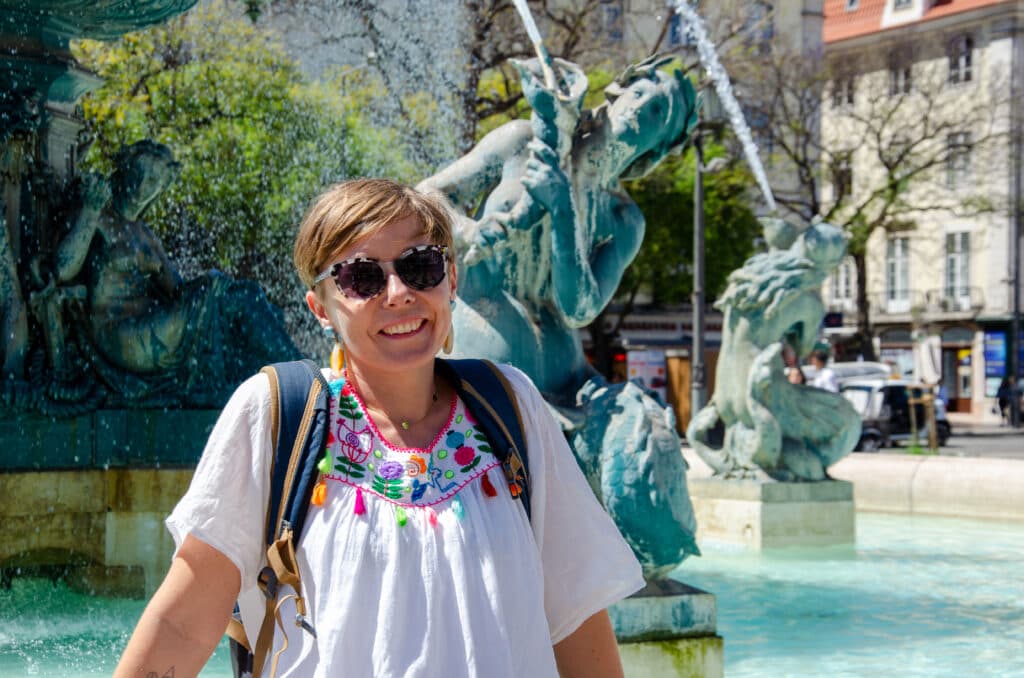
Lisbon is also famous for its climate. Most of the year it’s sunny here. The worst weather is in November and then in January-February. In the winter the temperatures at night drop to around 5 degrees, during the day it’s pleasant and it’s about 15 degrees. I always warn against the buildings here as most of them don’t have heating, so you might get cold inside during the winter months. The best time to stay is from May until end of October, when it’s very warm and it’s ideal to go to the beach.
As a digital nomad hub, Lisbon will be perfect to meet other people. There are a lot of events, meet ups and coworking spaces. You have plenty of cafes to work remote from and even some free places, where you can work in peace.
Lisbon is generally a very safe city. Of course, bad things happen here, just like everywhere, but I’ve walked around the streets here in the middle of the night and I’ve never had any safety issues. If you don’t want to walk, it’s easy to use the transportation system, or take an Uber, which is very cheap and fast.
Visa options for digital nomads
If you are from one of the countries in the EU, you don’t need a visa and you can work and live here up to 180 days. After that, you must register yourself and start paying taxes. If you decide to register, remember to get your NIF first as this will be needed for all other formalities.
For people from outside the EU, there are great solutions, like the digital nomad visa. In order to obtain it, your minimum monthly income must be €3,480. You must prove that you work remotely for a non-Portuguese company or are self-employed. You need to show proof of accommodation in Portugal and provide proof of health insurance that covers you in Portugal, with a minimum coverage of €30,000. There is also a clean criminal record certificate from your country of residence (and any countries where you’ve lived in the past 5 years) required.
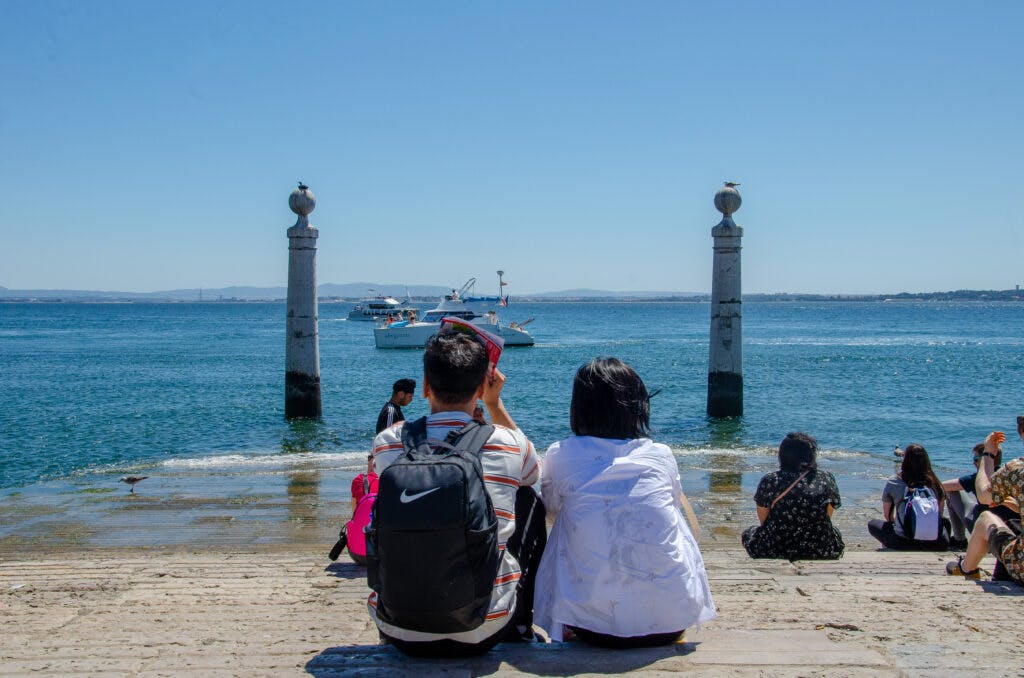
An alternative is the D7 Passive Income Visa. Your minimum income must be €870 per month, which can be increased for family members (50% for a spouse, 30% for each child). The total minimum passive income required is at least €10,440 per year. The income must be stable and regular, coming from sources such as pensions, rental properties, royalties, financial investments, or dividends. You must have a proof of accommodation – a contract for at least 12 months. Initial travel insurance is needed, and then health insurance is required until the residency permit is granted. The initial D7 visa allows you to enter Portugal and lasts for four months.
Cost of living
For many foreigners the life in Lisbon can still be quite affordable. Your monthly budget will depend on your earnings and your lifestyle. Sometimes, some things that are expensive to me might not be expensive to you and vice versa.
To survive in Lisbon and live on the bare minimum, you’ll need around 1,500 Euros. This will allow you to rent a room (maybe a flat, further away from the city centre) and have a decent lifestyle, but nothing luxurious. – This is a budget for one single person. Anything above that, is good.
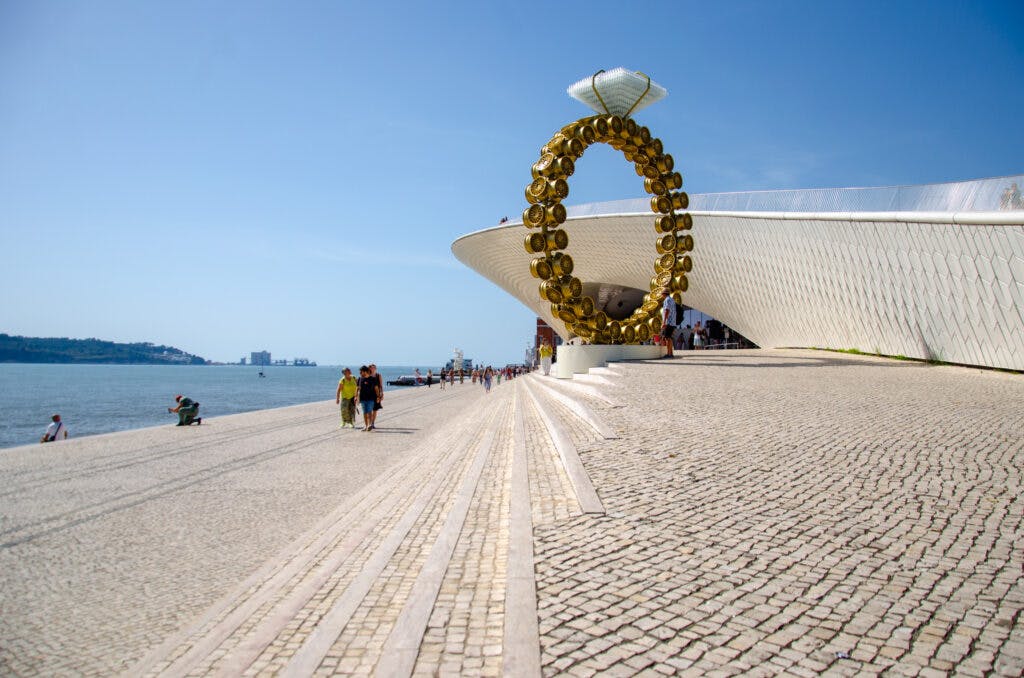
When I first came to Lisbon, I moved to the city from Chiang Mai and I was more used to the Thai prices. Everything was expensive to me. I kind of got used to it, but lately I’ve been noticing the prices going up all the time and the costs of living getting really high, especially in Lisbon. To us, people who have been here for at least couple of years, the city stopped being so affordable.
Check out my cost of living here.
Cost of accommodation in Lisbon for digital nomads
Food and Groceries
You can do your food shopping at supermarkets, such as Continente and Pingo Doçe. They usually have good prices. Sign up to their discount cards and use them with every purchase.
Shopping at local markets is also good, assuming these are local places. Food there is usually fresher and prices are affordable.
Examples of prices:
- Bread – 0.80 – 1.50 Euros
- Milk – 1 liter – 0.90 Euros
- Eggs – from 1.20 Euros – 4 Euros
- Chicken breast – 1kg 5.00-7.00 Euros
- Cheese – basic from 1.50 Euros, Portuguese cheese from 6 Euros
- Yoghurt – 0.40 Euros for a basic one and from 2.00 Euros for Greek yoghurt
There are different restaurants in Lisbon to suit every taste. Normally, the cheapest are so called tascas, which offer very local dishes. They usually have prato do dia for lunch, which is a set with a starter, main course, a dessert and a drink. It can cost between 7/8 Euros up to 15 Euros. Normally, in the centre, 1 dish is 14-17 Euros.
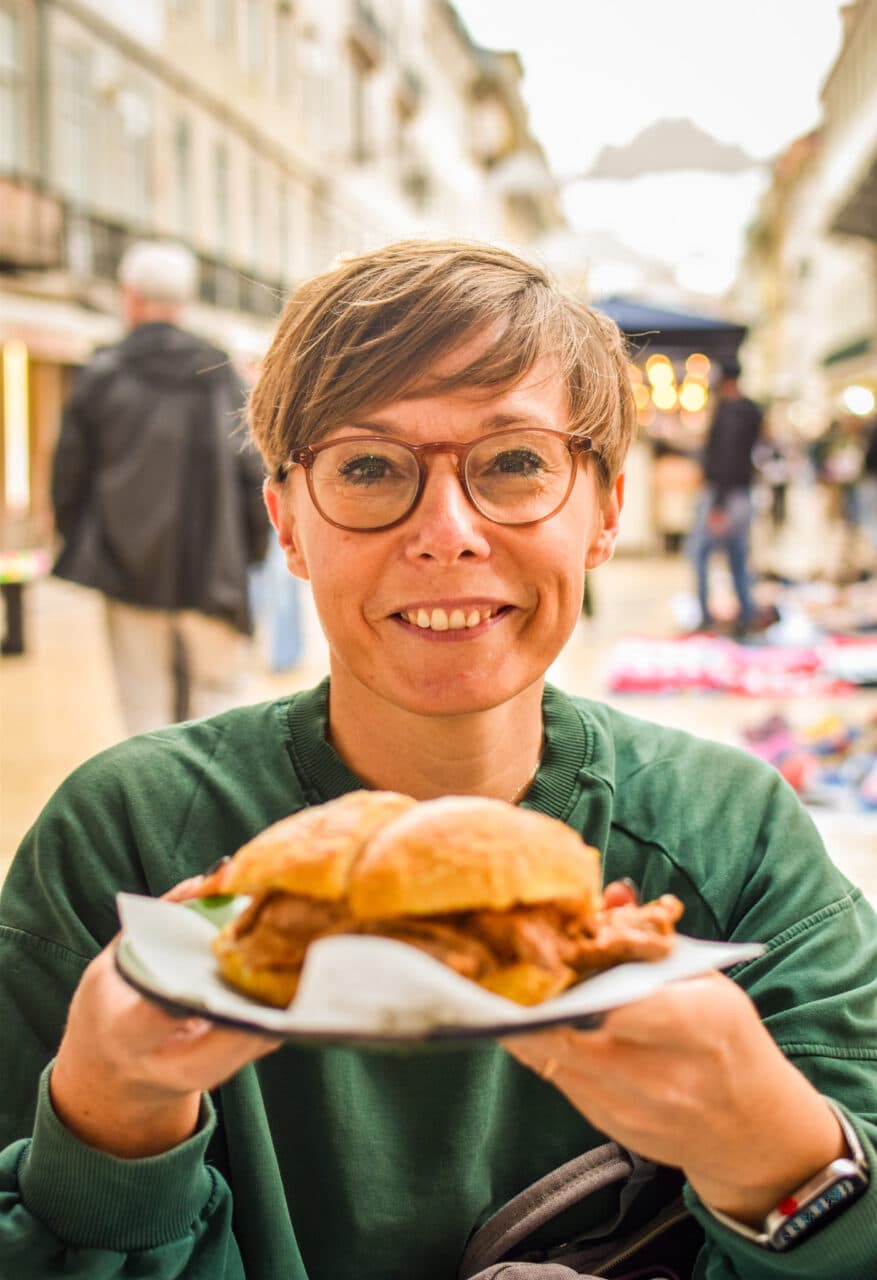
There are more expensive restaurants, of course and you will pay over 20 Euros for a steak with fries.
Transportation
Lisbon is not a big city and it’s good to walk around here, which will save you money. Transportation is convenient and very affordable. One ticket for a ride on a metro, or a tram is around 2 Euros or a bit more. You can buy a monthly ticket for 40 Euros and this allows you to use all types of public transportation in the city.

Uber or Bolt are very cheap, too. Sometimes, outside of the rush hour, I pay around 3-5 Euros per ride. Many people use it instead of buses or trams.
Check more information about public transportation in Lisbon here.

Omio is a different kind of travel search engine. It allows you to buy cheap single tickets for trains, buses and flights as well as longer holiday passes. Find out how to make travel planning easier
Coworking places

Coworks are quite popular in Lisbon. A lot of them create communities, which are the easiest way of meeting new and interesting people.
You can buy a single pass to some of the coworks. They cost around 15-20 Euros per day. A monthly pass starts from 100 and above.
Going out
If you like to have a drink from time to time, this won’t cost you much. Many people joke that beer in Portugal is cheaper than water and there’s something about that. In cheaper places a small beer costs less than 1 Euro. In more expensive bars, it’s 3-4 Euros.
Wine can be cheap, too. A vinho da casa – the cheapest option – costs 2-5 Euros per glass. A bottle is about 12-15 Euros.

If you like to go out, then it might cost you a lot more. You need to pay the entrance fee, which sometimes can be as much as 50 Euros. There are some cheaper places for students, but because I’m much older than that, I’m not that familiar with prices.
Best areas to live for digital nomads in Lisbon
When I first moved to Lisbon, I stayed in Benfica, which I really don’t recommend. I only stayed there because I didn’t have much money and that was the only affordable area. Then, I stopped being a nomad and decided to stay in Lisbon for longer, so my preferences changed. If I was a nomad coming to Lisbon, I’d stay in the fancy Principe Real, in the local Campo do Ourique, or something a bit further from the centre, like Santos. Don’t get tempted and don’t stay in the touristy Alfama. I haven’t even put it on the list below as I think this area is for tourists and it’s very busy. Additionally, the apartments there are not that great. They are dark and even after renovations, they might smell with mould. Stay a bit further and enjoy more local atmosphere.
Príncipe Real
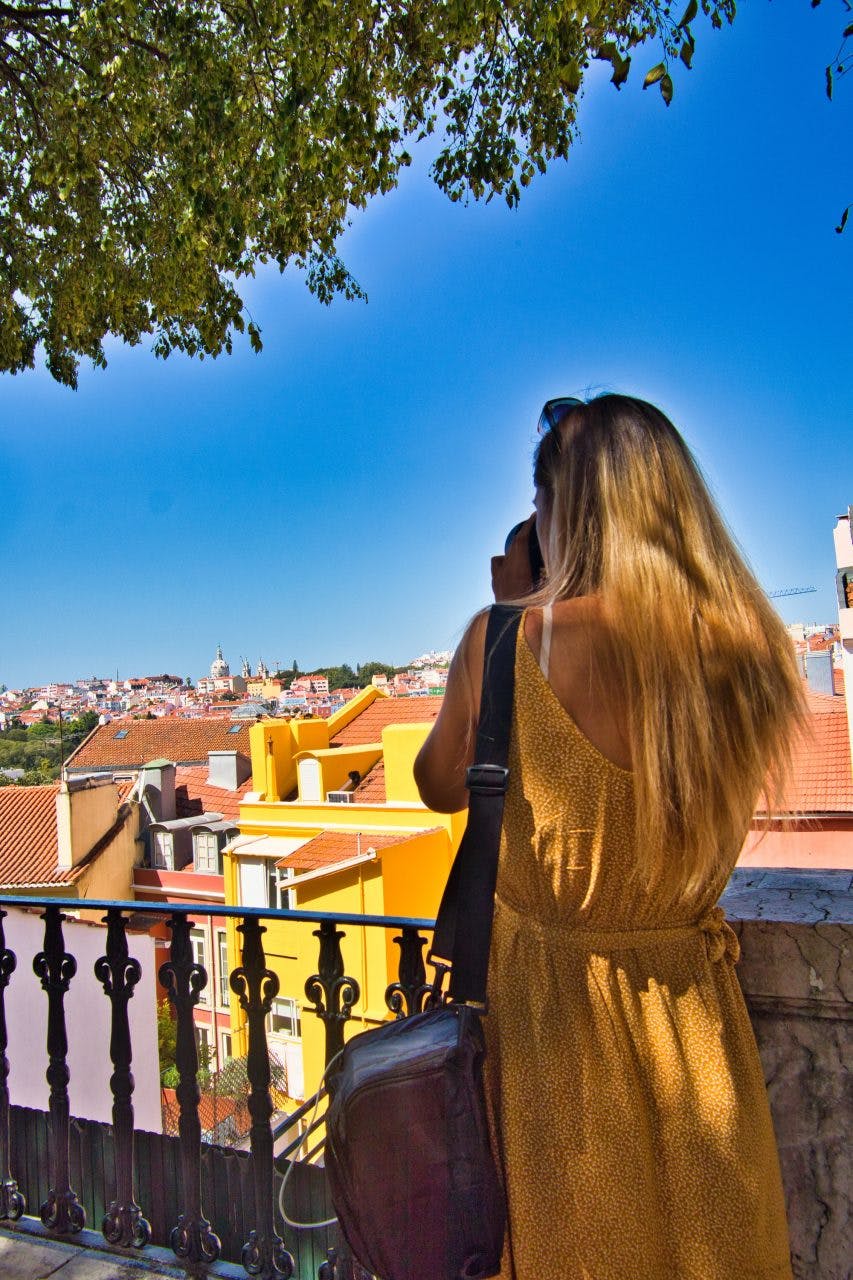
This is one of the trendiest and most expensive areas in Lisbon. It’s quite central, very close to the river front and to the heart of Lisbon. There are plenty of nice shops, boutiques, cafes and restaurants around. Personally, I love this area and if I could and had money, I’d definitely consider it for living. It’s also perfect for digital nomads moving to Lisbon as it has a few coworking spaces. There are many foreigners living here, making it a good international hub for anyone wanting to establish meaningful friendships and connections.
Santos/Cais do Sodré
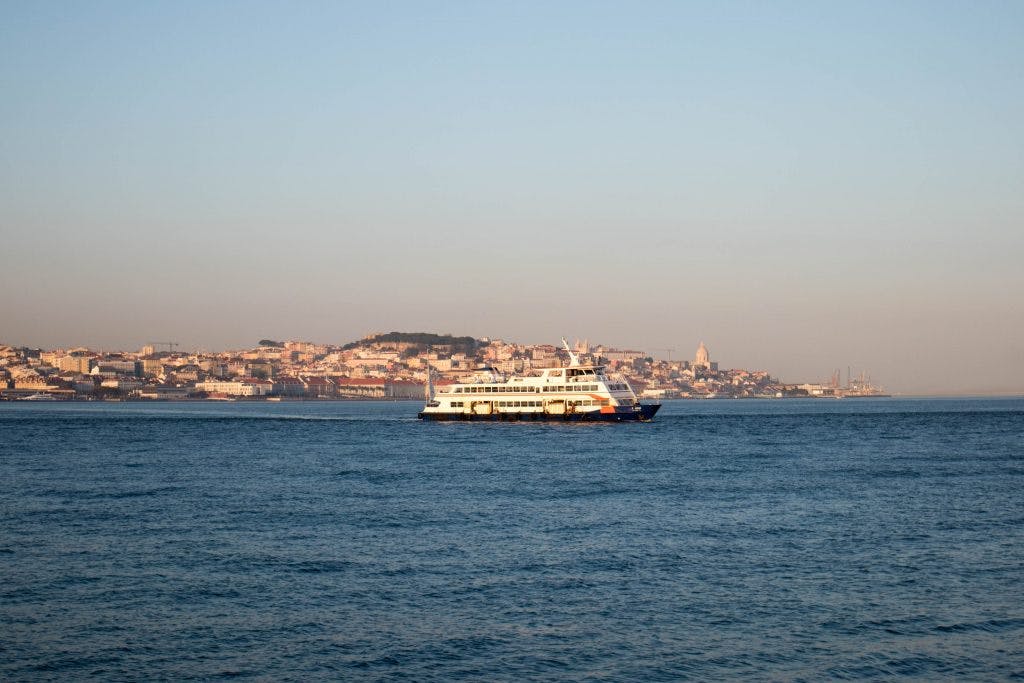
Let’s start form Cais do Sodré. This area of Lisbon is still very central, really well-located, close to shops and other conveniences. However, to me it’s a bit too loud. The main train station is full of tourists and is very busy. The nightlife here is considered very good, but because of it, it’s quite busy at night and during the weekends.
Santos is a bit better, but this is also my opinion. I really like going there for a walk to take some pictures. Recently it has been developing and there are lots of new bars, restaurants and cafes popping up everywhere. The disadvantage of it is that it’s not very central. It is far from the centre of the city, but maybe this is what makes it so attractive to many.
Alcantara
Alcantara is the home to the famous LX Factory. If you haven’t heard about it, check it out. It’s a former factory, which has been turned into shops and restaurants. The area around used to be quite rough, but it’s now changing and you can see renovations and many new places to hang out. It’s still a bit cheaper as it is far from the city centre, but the prices are going up. I think it might be the last call to snatch a good price for accommodation.
Belém

This is a bit out of the way and further from the city centre, but you still have great transportation – buses, trams and a train station with good connection to Lisbon. There is everything you need here and more. If you rent something away from the main tourist attractions, you will have some nice, quiet neighbourhood that you can enjoy. Belém is also known for being more family-friendly.
Campo de Ourique
If you’re looking for local vibes and some residential areas, this is it! Campo de Ourique will be lovely for digital nomads moving to Lisbon. It has shops, quiet walking streets and a great connection to the city.
Graça
Not so long ago this area was very local and quiet. Recently it has become a bit more crowded, but at the same time it has a great vibe. I enjoy going there for a sunset as it is surrounded by a few view points. There are good restaurants and bars. The connection to the city centre is a bit more difficult as there’s only a tram that passes through it, but if you don’t have to go the centre often, it will be a perfect place to stay.
Finding accommodation in Lisbon

When I first moved to Lisbon, I was looking for a flat for 1 year. The prices on Airbnb were very high, so I was looking for something a bit cheaper. It wasn’t easy. The rules for renting a flat in Portugal are very tricky. If you want a proper contract, then you need to provide a series of documents, including a NIF (Portuguese tax number) and a proof of employment. Some landlords require a deposit worth of 6 months rent in advance. You can read all about this here.
As a digital nomad in Lisbon you might have less problems, especially if your budget is a bit higher. Renting a flat for a shorter amount of time is easy. There are plenty of offers on Airbnb and Booking.com. The prices are higher if you calculate it by month, but you don’t need to provide any documents and there’s no contract.
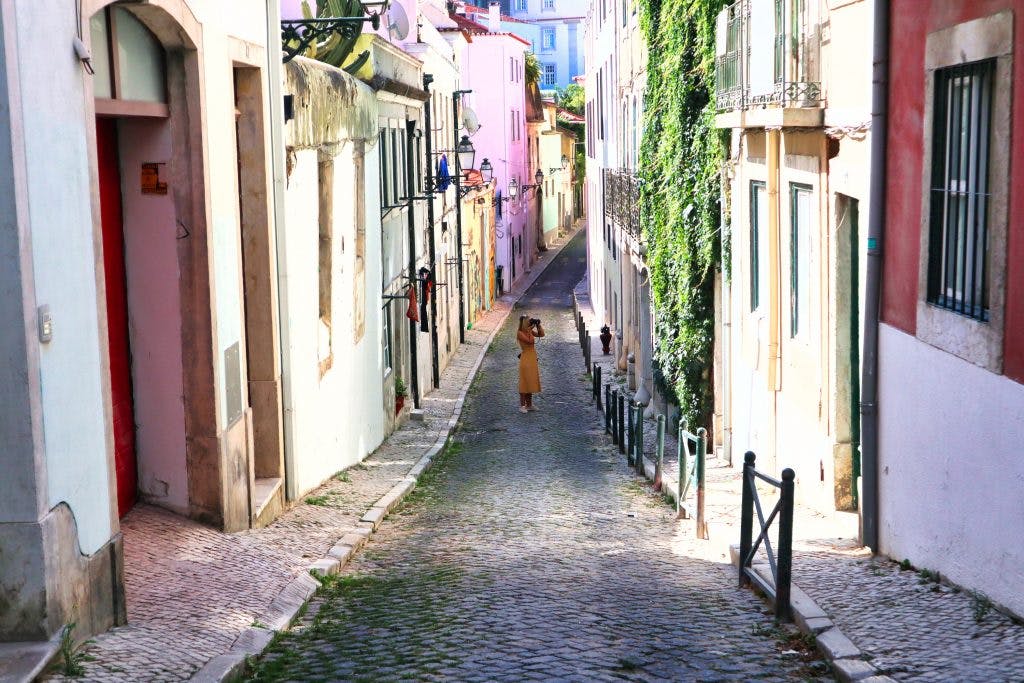
If you use some other online platforms or Facebook groups, be careful. There are some ads of rooms and flats that look beautiful for a very good price. When you contact the owner, it turns out that they are not currently in Lisbon, but if you pay, their neighbour will give you the keys. This is a standard scam. You will lose the money. Sometimes it’s best to book on Airbnb.
You can start browsing different websites before you come to Portugal. The most important are:
- Airbnb
- Booking.com
- Idealista
- Uniplaces
- Facebook groups e.g. Expats in Lisbon, Digital Nomads in Lisbon
When you arrive at Lisbon Airport, the easiest way to get to your accommodation is via DayTrip or the metro (cheaper option). Uber/Bolt also work great and cost around €10-15 to the center.
Internet and staying connected
The internet in Portugal is amazing. It’s probably one of the best in Europe and you can get it everywhere. Before you come here, get an E-Sim card. The installation of it is simple – buy it before you travel and switch it on when you land. This is the easiest way of staying connected.
Buy a Sim card after you land. There are kiosks at the airport, where they sell cards for tourists. The most popular are Vodafone or MEO. If you want to get a sim for longer than 30 days, then you’ll need to get a proper contract, which might be tricky if you don’t have a NIF number.

Wi-Fi is available in all apartments to rent and usually it’s great. It will be enough to work, make calls etc. It’s also really good in coworking spaces. If you want to work from cafes, it might be a bit tricky. You’ll need to find places that were created with digital nomads in mind. There are quite a few of them in Santos and Cais do Sodré. There are also some free places, like beautiful libraries, where you can work. I used to visit them quite a lot, but some don’t have wi-fi, so I had to use my mobile data.
5G is widely available in Lisbon and you’ll be able to use your phone everywhere. There are some cafes and restaurants that block the signal and often it’s a bit of a hit and miss.
If you need VPN, I highly recommend NordVPN. I used it mainly when I was in Iran and it works really well. They have some good prices for packages and it’s very easy and simple to install.
Should you be worried about taxes?
You can stay in Portugal for up to 183 days. After that you should register for paying your tax. In order to do that, you’ll need your NIF and your social security number. If you have a contract here, your employer should take care of the rest. But, if you’re self-employed, you will need to register for recibo verde and find an accountant, who will file your taxes.
I recommend checking Bordr.io, who also help with this and are really amazing with their advice when and how to file.
Essential services and logistics
The things you will need would depend on how long you’re planning to stay in Lisbon. If you’re here only for a month or so, then you won’t need much. Booking your accommodation and getting a Portuguese phone number will be the first things to do. The rest would be optional.
Digital nomads who are planning longer stays in Lisbon, will need more services and will have to go through some of the infamous Portuguese bureaucracy.
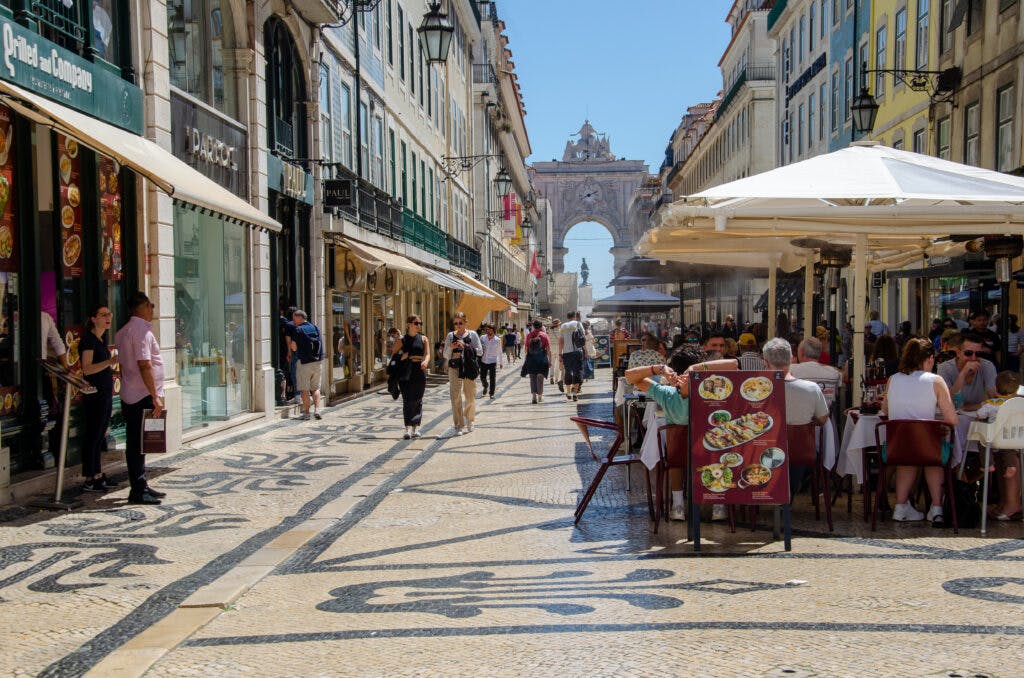
First of all, get your NIF (tax number), which will open the doors to many things. After you have that, it’s time to open your bank account. For both I used Bordr.io, which help foreigners establishing themselves in Portugal. Their services are great and fast and really save you time on standing in queues and dealing with offices.

Moving to Portugal? Bordr.io takes care of all the paperwork, so you can focus on enjoying your new life. Get your NIF, open a bank account, file your tax return and more, all in one place.
To open a bank account, except your NIF, you will need an employment contract, a permit to stay, sometimes you’ll need your accommodation contract, too. It’s a bit of a hustle, so use Bordr.io, or try with ActivoBank, which usually is the easiest. If it doesn’t work, don’t worry, you can easily use Revolut or Wise here. I normally use both. They are super easy and fast. I don’t really need a Portuguese bank account, unless I want to use MBway, which is a form of internet and telephone payment here.
When taking money out of a cash machine, always do it from a machine in a bank, or one that is marked Multibanco. These shouldn’t take any fees. Avoid Euronet, which always charges 3-5 Euros, depending on your bank.
Healthcare system in Portugal is quite good. I would recommend getting a Utente number, which will allow you to use government services. This is just in case you really need to go to a hospital or a local clinic. In Portugal everyone uses private insurance. This is the best solution as private healthcare here is really good.
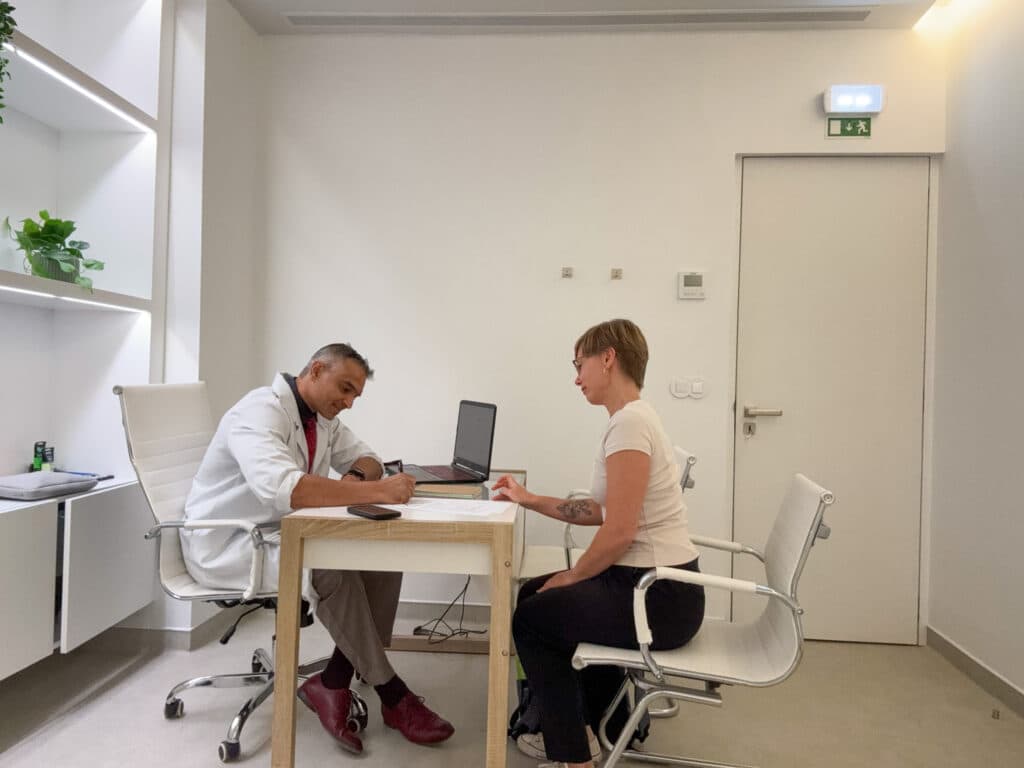
Speaking of healthcare, one of the first things I sorted before moving to Lisbon was my travel insurance. While Portugal has excellent healthcare, as a digital nomad moving around, I needed coverage that was flexible and didn’t tie me to one country. I’ve been using SafetyWing’s Nomad Insurance for 5 years now and it’s been a game-changer. Unlike traditional travel insurance that’s limited to short trips, it covers you monthly with automatic renewals, works in 185+ countries, and even covers you if you pop back home briefly. The fact that I can subscribe and cancel anytime means I’m not locked into an annual plan—perfect for the nomad lifestyle. Plus, at around $56.28/month, it’s incredibly affordable. You can sign up even after you’ve already left home, which saved me when I decided to extend my stay. Click here to get a quote from SafetyWing in under 2 minutes →.
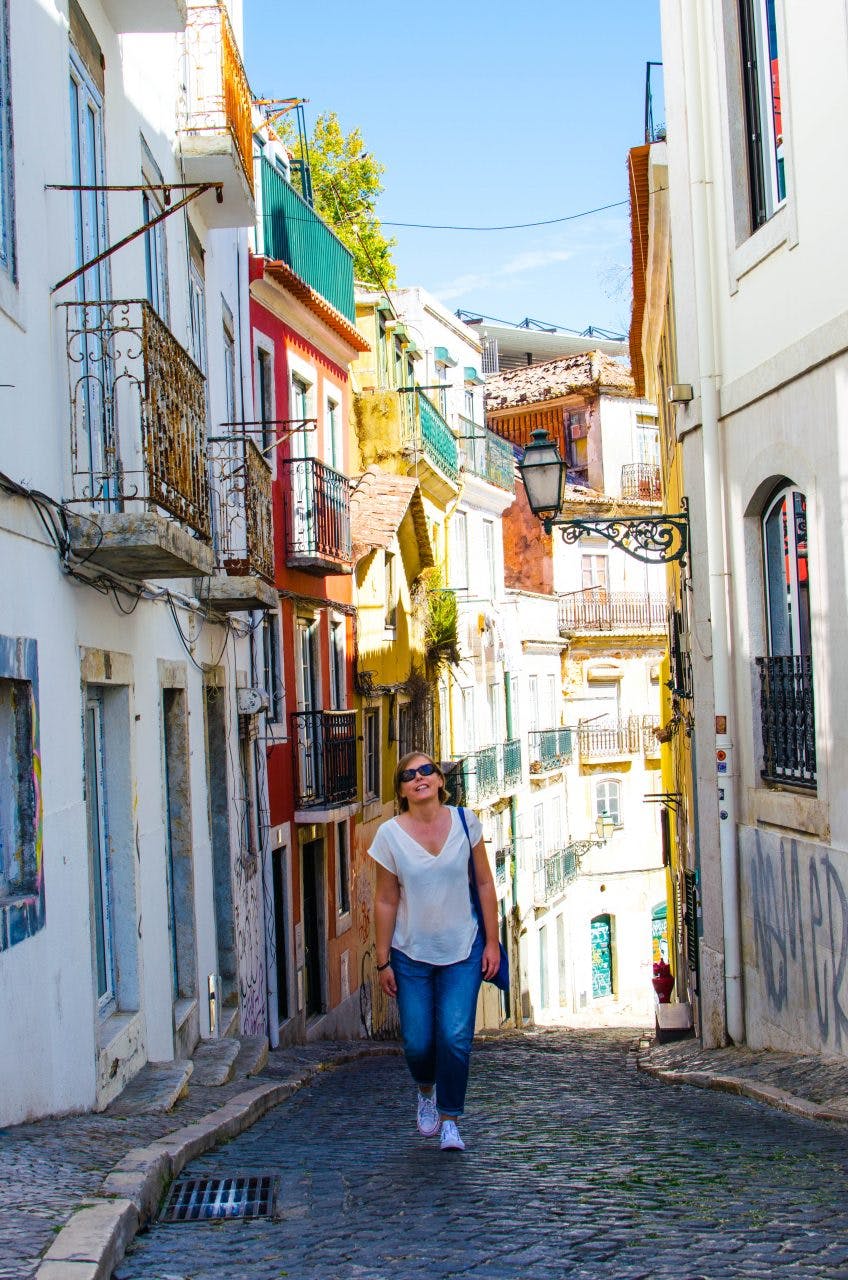
Another solution I can recommend, which can work very well with your digital nomad travel insurance is Tejomed. They provide personalised GP concierge services. You sign up and are assign to a doctor. The first visit lasts for 2 hours. The doctor interviews you and discusses all your concerns with you. Then, you’re sent to do some tests and come back after a couple of weeks with results. The doctor establishes a healthcare routine for you. After that, you check-in with them every now and again. They also are available 24/7 in case of emergencies. You can book an appointment in person or online anytime you need it. A big bonus is that everyone speaks English. Check out my review of Tejomed here.
Here are essential emergency numbers. It’s worth taking a note of them:
- 112 – Main Emergency Number (FREE), All emergencies: medical, police, fire, Available 24/7, Free from any phone (mobile or landline)
- Pan-European emergency number, Operators may speak English, but be prepared to speak clearly
- 808 24 24 24 – SNS Health Line 24 (Linha Saúde 24)
- Tourist Police in Lisbon: +351 21 342 1623
Coworking spaces and work set up
I’m not such a big fan of coworking spaces. I used to go to some of them and from time to time, when I need a change, I go to my favourite ones. I know that to some people these are important facilities and I realise that they provide contact with other people and opportunities to meet others.
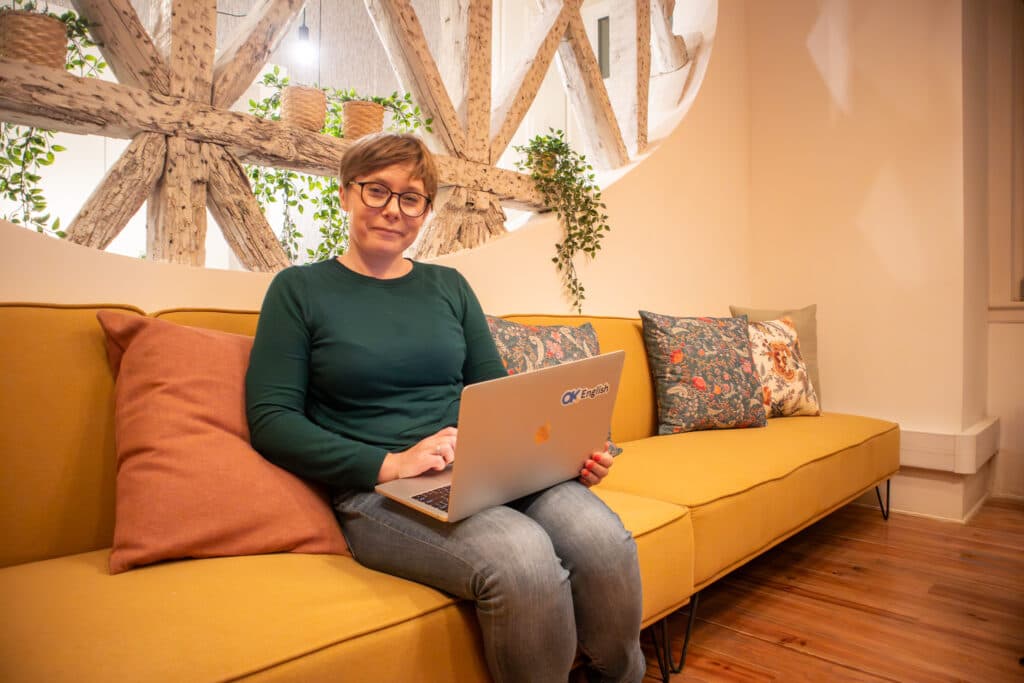
In Lisbon there are quite a few coworks. Some of them are already very established in the city and a lot of people use them. The most popular ones are:
- Second Home – from 25 Euros per day
- Heden Chiado – 10 Euros per half a day, 179 Euros per month
- The Tribe – from 120 Euros per month
- SameSame – from 200 Euros per month
- Selina – it’s a coliving and you can work there for free if you buy something. Check my review of their site in Vila Nova de Milfontes.
Portugal is all about coffee, but the coffee culture is a bit different from what you might know from other locations. In the city centre it’s hard to find a cafe to work from. You need to go a bit further away from it. The centre is more for tourists, not for digital nomads.
Traditional cafés are not great places to work either. They don’t have wi-fi, they are loud and not comfortable. The decor is nice if you like very local places, but to me it’s never good for working.
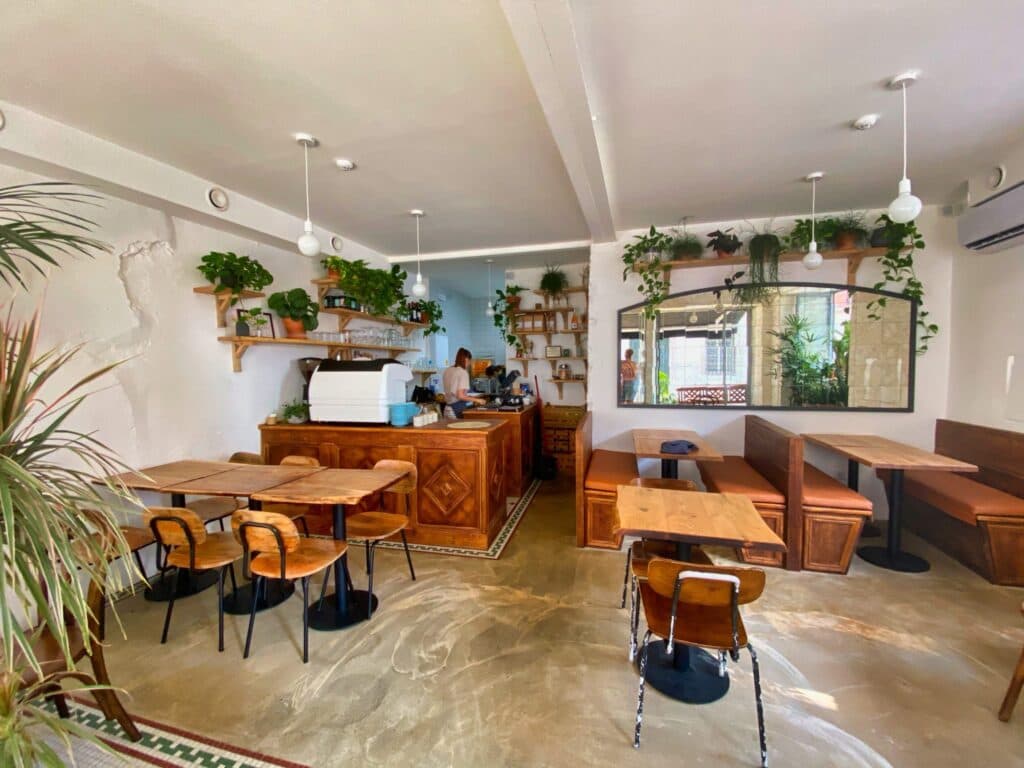
There are more expensive and upscale coffee shops in Lisbon, but not all of them welcome nomads with laptops. For example, Fabrica Coffee Roasters is amazing when it comes to coffee, it has comfortable chairs and nice decor, but they don’t have wi-fi and they don’t want people work on their laptops there. Their place is for enjoying coffee and socialising.
If you want to work from a coffee shop, try Hello, Kristoff , or the Mill. Comoba also provides coworking tables. Recently I like to go to Honest Greens. They aren’t a coworking cafe, but I like the atmosphere and the food.
There are some free spaces you can use. There is a lovely library in Chiado. Just remember that they might be full of students and there’s not wi-fi or wi-fi is very weak.
Some people work from so-called kiosks. You will see them all over Lisbon. They look really lovely with their art-deco architecture. They sell drinks and some snacks and have tables outside, so you can only work there during good weather. There are a lot of them on Avenida da Liberdade, but it might be a bit crowded during warmer days.
Meeting people and community
Lisbon has a thriving digital nomad community and there are plenty of places to meet others. First, download the app Meet Up. There is one meeting every month and it’s a really big one. When I first moved here, I went to check it out and there were around 50 or so people. To me it’s a bit too much, so I have never gone back, but it might be something for you, if you want to make friends quickly. There are also other events for different interests. You will find them on the app.
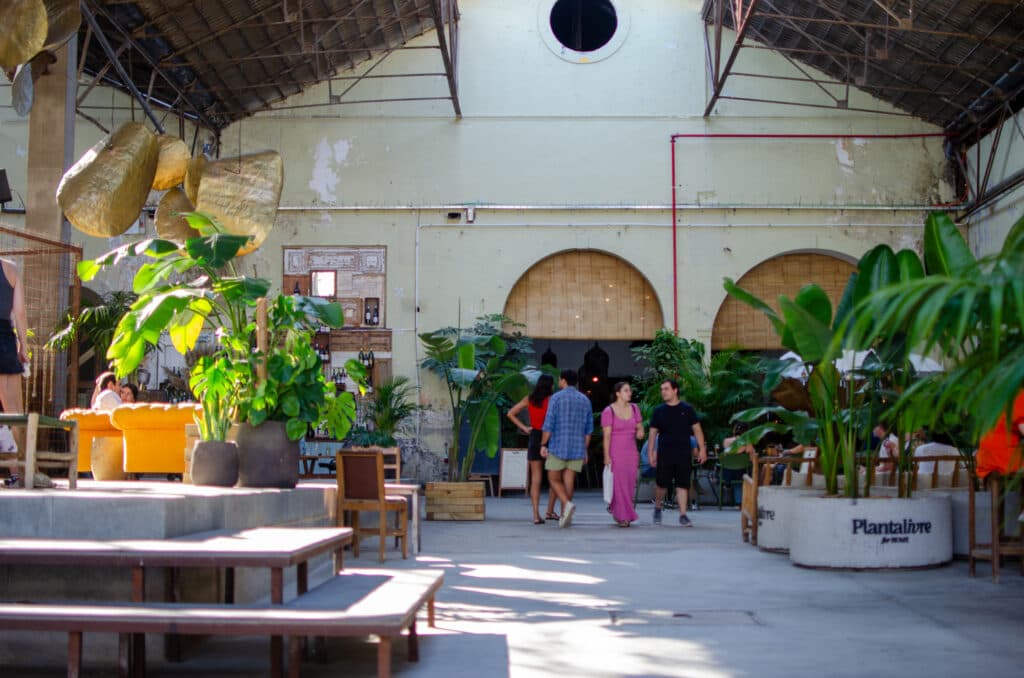
Facebook groups are also very useful. Some people post there looking for friends. I think it’s a very fast way of meeting others. You can also ask questions and the members are usually very helpful.
Try Instagram. I have made so many friends on there. I look for people living in the city and message them if I like them. I also post on my stories that I’m looking for someone to spend time with. After a few years, I have a very solid group of friends that I met there.

Connecting with locals is a bit more tricky, especially if you work online and don’t have a daily contact with the Portuguese. I have been here for 7 years and don’t really have good friends among them. I just know people here and have small chats. The Portuguese people are nice and kind, but they are also reserved. It’s good to know the language before you attempt to make meaningful connections. My way of meeting the locals is to go to the same places like bars or restaurants. After a while they recognise you and you can start chatting to them. It’s a good idea to knock on your neighbours’ doors and introduce yourself. The people here like that a lot and they are usually very helpful.
Cultural Etiquette
The Portuguese culture is not that different from the rest of Europe, but they also have their own traditions and customs that the newcomers should be aware of. For example, it took me a while to get used to kissing on the cheek when meeting someone, even if they are not your closest friend. You kiss the other person once on each cheek. This is done when meeting a new friend, someone you’ve met before or someone you are close to. Normally, it’s not done in a professional setting, although, my dentist does it to me as well.
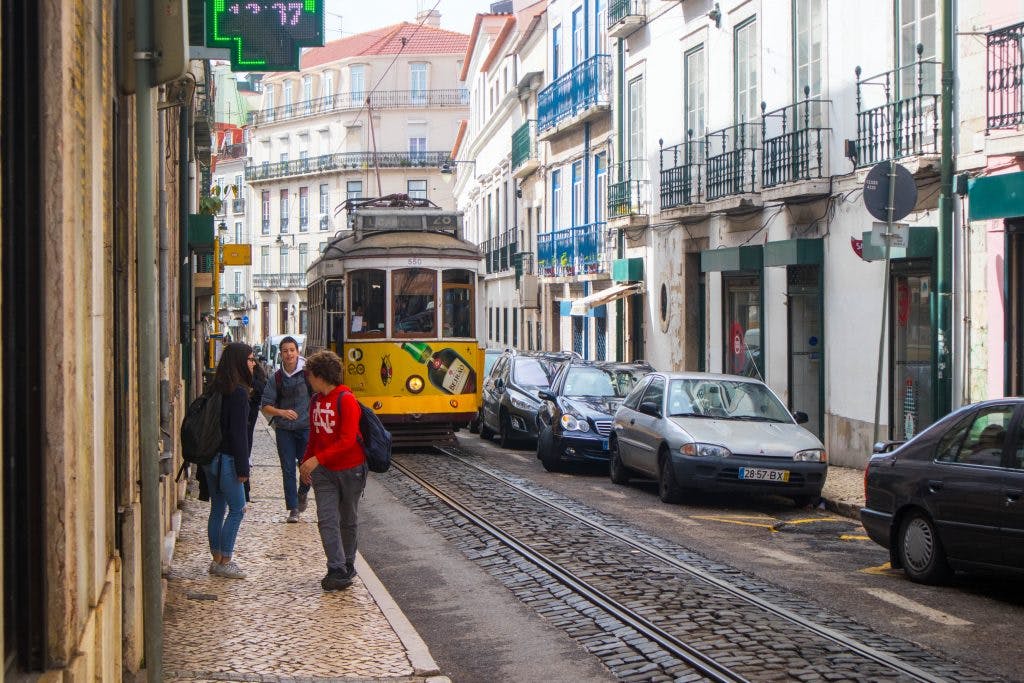
Tipping is not required in Portugal, but appreciated. There’s no set amount you must leave. You can just leave the change that was given to, but depends on the amount of the bill, you might want to leave more.
The Portuguese are often late. If you set a meeting for 4pm, you can be sure that the person will turn up at 4:15pm. They just take their time with everything. Events and parties also start late. Birthday dinners are often scheduled for 9pm or so and finish after midnight.
Driving here can be a bit hectic, especially in the cities. Parking is always a problem, so people park wherever there’s a space, even on roundabouts.
Day – to – day life in Lisbon
After you move to Lisbon as a digital nomad, you’ll have to locate the nearby shops and supermarkets. It’s easy to find everything. Just type into Google Maps ‘supermarket’ and you’ll find it. The most popular are Continente and Pingo Doçe. They offer the best variety of everything and they have good prices. Mini Preço is a chain of small supermarkets. They usually have the basic things, but their prices are higher. There are also German supermarkets here, like Aldi and Lidl, which I personally really like. Recently Mercadona, a Spanish chain, entered Portugal. I recommend having a look there, too. They have some nice Spanish products.
The thing I like about living here is that the people value their local products and really try to support their vendors. There are still a lot of shops ran by independent sellers. If you’re lucky, you might live near a fresh market, where the quality of food is always much better. The prices in places like that are usually the same or slightly higher than at a supermarket. To me, it’s always worth paying a bit more for something good.

Eating out is more expensive than in Asia, where I lived for a couple of years. Lisbon has great choice of different restaurants. You can eat very locally at one of the tascas. These are not great for vegetarians though. The local places are disappearing slowly from the city centre, but in the suburbs you can easily find a place.
If you go out too much and want to lose those calories, or you just keen on sports and like to be active, then Lisbon will not disappoint. There are yoga studios and gyms that offer daily and monthly passes. I especially like Little Yoga Space and Viva Gyms are quite affordable. There are also new pilates studios popping up all the time – I get the ads on Instagram, but can’t recommend any yet as I haven’t attended.
On Meet Up you will find running clubs especially for digital nomads. During the Summer there’s plenty of opportunities to dance salsa or bachata on the streets and in the parks. Try climbing at Ponte 25, which is located just under the 25 April Bridge.
During your working time, if you fancy a coffee, head to your local pastelaria. Order a bic or a cafezinho, which is small espresso. You can drink it at a table or at the counter, just like locals do. In the evening, you can find a nice place for a glass of wine. Spend some time exploring the area. Weekends are perfect for that. Take a trip to Sintra, or head to Cascais. I recommend visiting Almada, which is on the other side of the river. Later on, you can venture outside of the capital and maybe even spend some time in Porto.

Omio is a different kind of travel search engine. It allows you to buy cheap single tickets for trains, buses and flights as well as longer holiday passes. Find out how to make travel planning easier

You can get by in Lisbon by speaking English only. Older generation doesn’t speak it at all, but people from around 40 years old or so can speak it quite well. However, the Portuguese love when foreigners speak their language and you’ll get a lot of praise and help from them. Try to learn at least some basics. You don’t need to be fluent. Just show them that you care and they will look at you differently. I recommend Italki for your first lessons.
Things to know before you go
Lisbon is located on several hills and it can be difficult to walk here. There is always a hill to climb. On top of that, pavements are made out of so called calçada portuguesa. These are small tiles that are very pretty, but when it rains they become slippery. Wear comfortable shoes. Forget about heels and shoes that look good, but rub your feet.
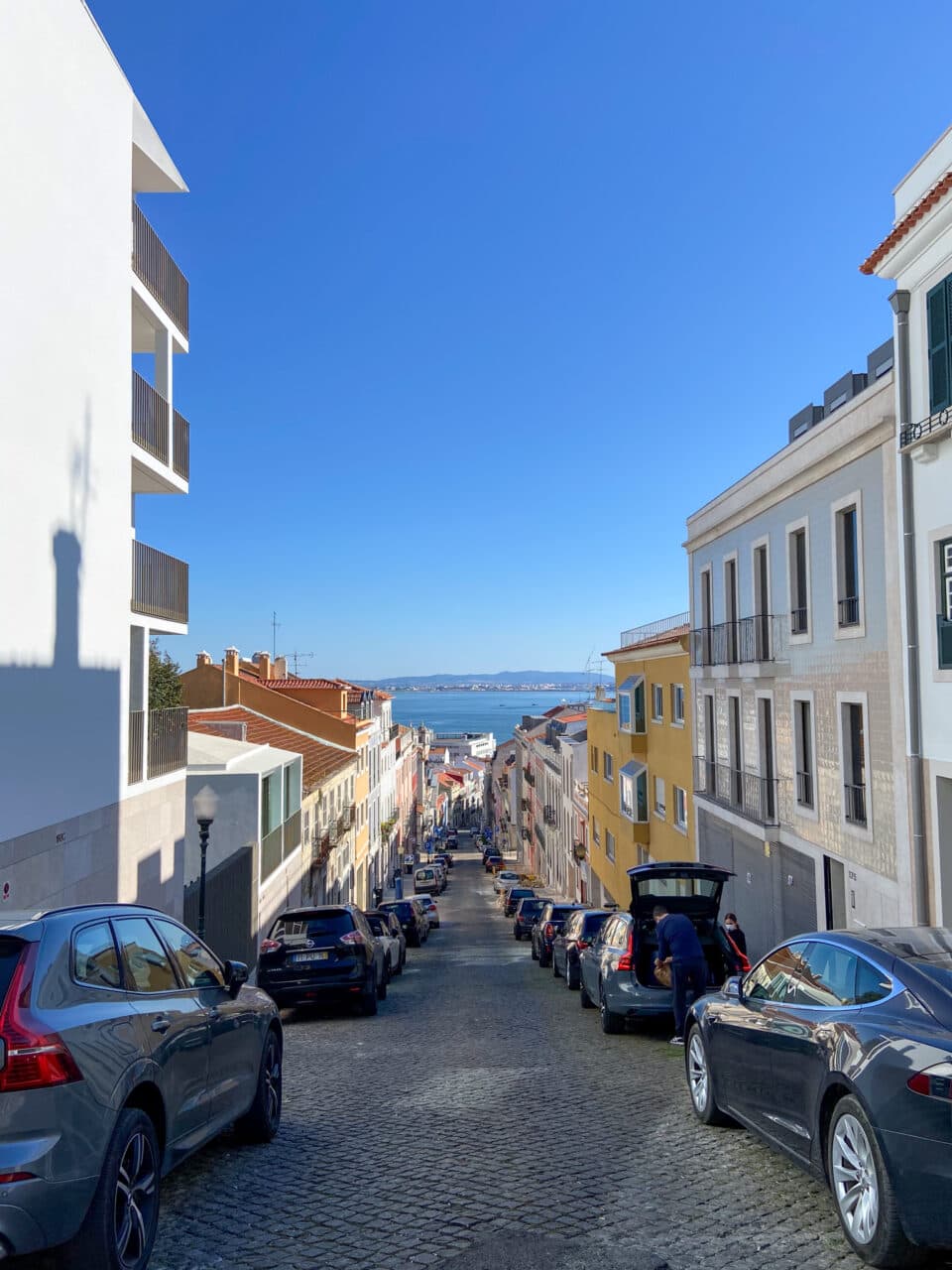
Local places and offices observe siesta. They don’t really call it like that, but they do take breaks from around 12 or 1 until 2 or 3. A lot of businesses close during that time and only those that are for tourists, or serve lunch are open. The latter also close at 3 and re-open at 7 or 6.
Carry some cash with you. More and more places accept cards, but small cafes, bakeries and restaurants operate cash only. Sometimes they can accept cards, but only the Portuguese ones, so you won’t be able to pay with your Revolut.

Get used to the fact that everything here takes time. Customer service is not the best. I get frustrated a lot because companies don’t answer the emails or phone calls and when they do, you have to wait for your case to be sorted out for a long time. This is how it is here and you must get used to it.
Lisbon is very touristy. There are crowds of people in the city centre, especially in the Summer. The main beaches are then really busy, so I recommend getting a car and driving somewhere away from the city. Check prices on Discover Cars, which at the moment has amazing offers on rentals.

And finally – the weather. The Summer is scorching hot. In August it might be as hot as 40 degrees. The winters are mild, but homes don’t have heating and it can get cold inside. Make sure that you have an electric heater and dehumidifier, which helps a bit. Usually, November and January are very rainy. April can be quite cloudy, too. My favourite months are May-June and September – October when the temperatures are in mid-twenties, it’s sunny and you can enjoy the outdoors every day.
Pros and cons of living in Lisbon as a digital nomad
I will write this from my perspective – a person that has been here for over 7 years and works online.
I think that the city has a lot to offer. There are restaurants, bars, cafés and lots of meet ups for everyone. The streets are pretty and the vibe is amazing. You might find yourself sitting at one of the kiosks, drinking wine and thinking that you’re living the best life. On the weekends, you can take a blanket and a parasol and head to one of the beaches for a whole day.
The internet here is amazing, too. I have never had a problem with it and we have a super fast internet at home. It makes my life and job less stressful. I really don’t need to worry about it.

Portugal in general is safe. Of course, there are some problems and bad things can happen, just like anywhere, but in general, I feel very safe here. The Portuguese are calm, kind and they don’t like to stir conflicts. Sometimes it can be a bit annoying as they tend to ignore things that can be potentially frustrating to others, like noise or bad parking.
In the cons section, I’d put the conditions of accommodation. In my opinion flats are expensive, very often very basic, damp and cold in the winter. The recent tourist boom caused the inflation in prices. Landlords don’t seem to care about the state of their properties. They know they can rent it eventually.
Lisbon is also very touristy. The centre lost its charm. The city is crowded, filled with places only for tourists. Local restaurants are disappearing. It’s hard to walk around in the Summer. As said before, it’s best to stay away from the centre.
Final tips and recommendations
If you’re a digital nomad and thinking of coming to Lisbon, then aim to come here during the Spring, Summer or early Autumn. Stay for at least a month, maybe a bit longer. This will allow you to get to know the city, meet people and get the feel of the area. It’s also a good time to check out other places as well.

In my opinion, Lisbon is a good place for digital nomads, but only for those who like to stay in Europe and have a budget of 1500 Euros per month or more. If you have less to spend, then going to Asia would be better. Lisbon is expensive and for about 1,000 Euros you won’t have good time here.
If you are ready to call Lisbon your digital nomad base, then don’t hesitate and buy your ticket now. Try it out and see how you like it. Don’t forget to let me know later what you think!
FAQs about being a digital nomad in Lisbon
How much money do I need to live in Lisbon as a digital nomad?
You’ll need a minimum of €1,500 per month to live comfortably in Lisbon as a single person. This covers a room or basic apartment, groceries, transportation, and some social activities. For a more comfortable lifestyle with your own apartment in a good neighborhood and regular dining out, budget €2,000-€2,500 per month. If you’re planning to apply for the Digital Nomad Visa, you’ll need to prove a minimum monthly income of €3,480.
Do I need a visa to work remotely in Lisbon?
If you’re from an EU country, you don’t need a visa and can stay up to 180 days without registering. After that, you’ll need to register with authorities and pay taxes. Non-EU citizens can stay visa-free for up to 90 days as tourists. For longer stays, you’ll need either the Portugal Digital Nomad Visa (minimum income €3,480/month) or the D7 Passive Income Visa (minimum €870/month). Both require proof of remote work, accommodation, and health insurance.
Is Lisbon safe for digital nomads?
Yes, Lisbon is generally very safe. I’ve been here for over 7 years and have walked around the city at night without any problems. Portugal is one of the safest countries in Europe. Of course, you should take normal precautions like watching your belongings in crowded tourist areas and being aware of your surroundings. Petty theft can happen in busy areas like Rossio and Baixa, but violent crime is rare.
Do people speak English in Lisbon?
Yes, English is widely spoken in Lisbon, especially among younger generations and in the city center. Most people under 40 speak English quite well, and you won’t have problems with communication in shops, restaurants, or coworking spaces. Older generations may not speak English, but you can always use Google Translate for simple conversations. That said, learning some basic Portuguese will earn you a lot of goodwill from locals.
What’s the best time to visit Lisbon as a digital nomad?
The best time to stay in Lisbon as a digital nomad is from May to June and September to October. During these months, temperatures are pleasant (20-25°C), it’s sunny, and the city isn’t overwhelmingly crowded with tourists. July and August are very hot (often reaching 35-40°C) and extremely touristy. Winter months (November-February) can be rainy and cold inside apartments since most buildings lack heating, though temperatures rarely drop below 10°C.
Is the internet good enough for remote work in Lisbon?
The internet in Lisbon is excellent – probably one of the best in Europe. Home internet is super fast with speeds that can handle large file uploads and downloads in seconds. Mobile data is also very reliable, and 5G is widely available throughout the city. I’ve never had problems with internet connectivity while working from home. SIM cards are affordable (around €15-20/month), and most apartments come with high-speed Wi-Fi already installed.
Which neighborhood should I stay in as a digital nomad?
For digital nomads, I recommend Príncipe Real (trendy and central with coworking spaces), Campo de Ourique (local vibe and residential), Santos (up-and-coming with new cafes), or Graça (quiet with great viewpoints). Avoid staying in Alfama – while it’s beautiful, it’s very touristy, apartments can be damp and dark, and it’s noisy. Stay away from the city center if you want to experience authentic local life and have a better living situation.
Can I find coworking spaces in Lisbon?
Yes, Lisbon has many coworking spaces. Popular options include Second Home (from €25/day), Heden Chiado (€10/half day, €179/month), The Tribe (from €120/month), and SameSame (from €200/month). Many coworking spaces also host events and meetups, making them great for networking. However, working from traditional Portuguese cafés can be challenging as many don’t have Wi-Fi or welcome laptop workers. Look for more modern, nomad-friendly cafés in neighborhoods like Santos and Cais do Sodré.
How long should I stay in Lisbon?
I recommend staying for at least one month, ideally two or three months. This gives you enough time to settle in, explore different neighborhoods, establish a routine, meet people, and truly experience the city beyond the tourist attractions. Many digital nomads stay for 3-6 months to really get a feel for living here. If you’re just testing it out, one month is the minimum to understand whether Lisbon works for you.
Is Lisbon affordable compared to other European cities?
Lisbon is more affordable than cities like London, Paris, or Amsterdam, but it’s no longer the bargain it once was. Prices have increased significantly in recent years due to tourism and foreign investment. It’s more expensive than cities in Asia or Eastern Europe. For digital nomads from Western countries with good income, Lisbon offers decent value. However, if you’re on a tight budget (under €1,500/month), you might find better options in places like Thailand or Bali.
How easy is it to meet people and make friends in Lisbon?
It’s quite easy to meet other digital nomads and expats in Lisbon. Use Meetup app for regular digital nomad events, join Facebook groups like “Digital Nomads in Lisbon” and “Expats in Lisbon,” or connect on Instagram. Coworking spaces are also great for meeting people. However, connecting with locals is more challenging. The Portuguese are friendly but reserved, and it helps to speak some Portuguese. My tip: become a regular at local cafés, restaurants, or bars – after a while, people will recognize you and conversations will start naturally.
What are the biggest challenges of living in Lisbon?
The main challenges include finding good, affordable accommodation (apartments can be damp, cold in winter, and expensive), dealing with Portuguese bureaucracy (everything takes time), noise levels in many neighborhoods (especially in tourist areas and near nightlife), and the crowds of tourists in summer. The city has also become increasingly expensive, with prices rising faster than in previous years. Additionally, most buildings lack proper heating, so winters can be uncomfortable inside your apartment.